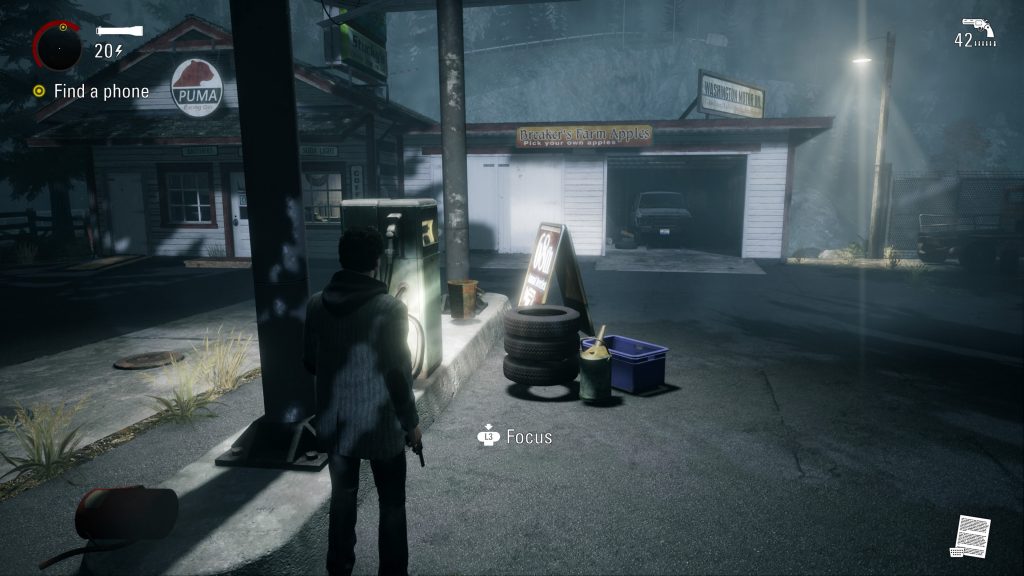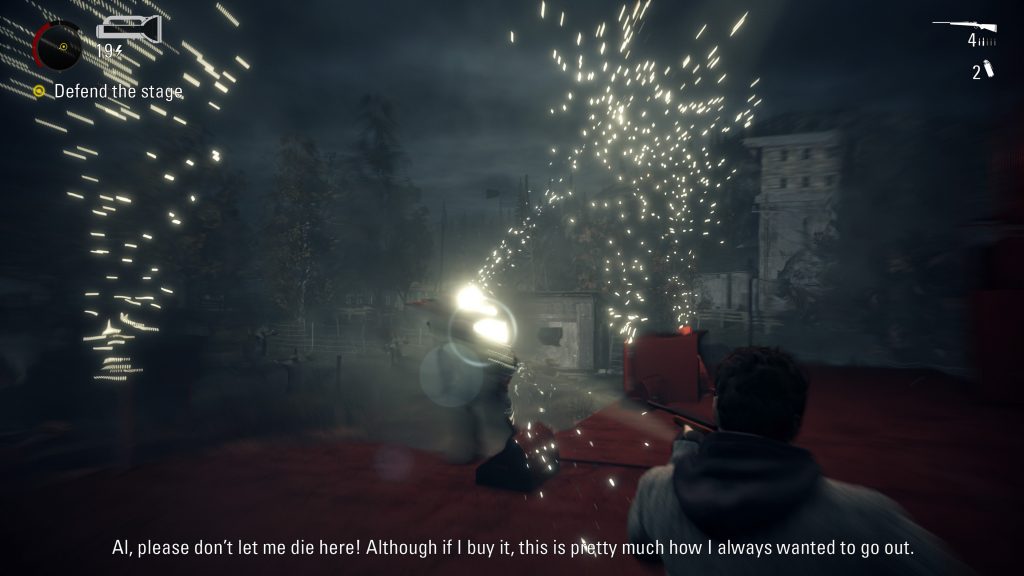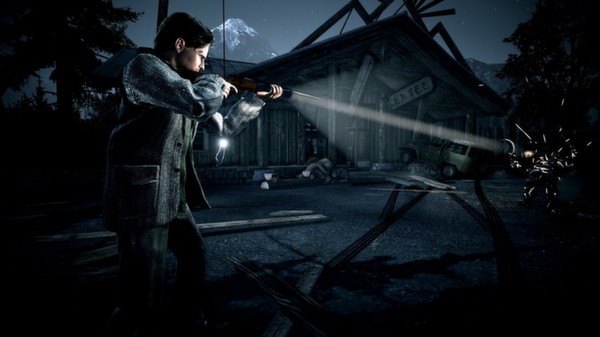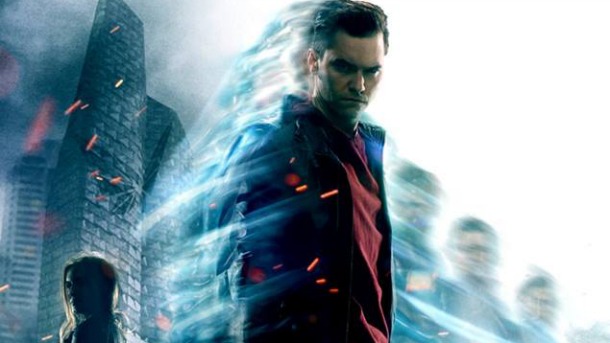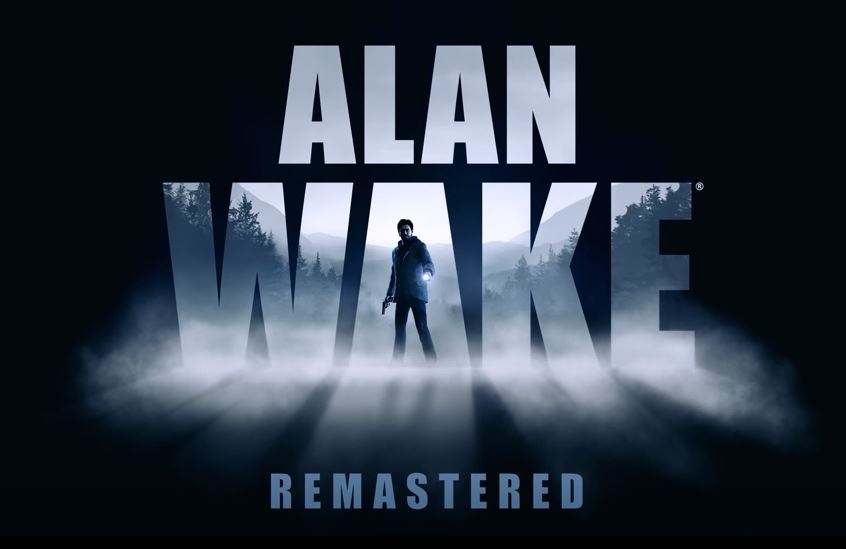
In 2010, seven years after Remedy Entertainment’s successful Max Payne duology and following a protracted development, the company released Alan Wake, hailed at the time as a landmark horror/thriller title with a creative and strangely self-reflexive storyline. It’s certainly stayed in the imagination of writer Sam Lake in the years since, as a standalone spin-off Alan Wake: American Nightmare shortly followed, along with Easter Eggs in Quantum Break and outright references and explicit connections in 2019’s Control and its AWE DLC. Now Alan Wake Remastered has been released for PS5, Xbox Series X|S and PC via the Epic Games Store, and while it doesn’t add much to the original version, it still mostly holds up.
Alan Wake is a bestselling author suffering writer’s block, whose wife, Alice, convinces him to take a holiday in the Washington state country town of Bright Falls. Shortly after settling in, things go wrong very quickly as the two fight over using the vacation as an opportunity to work, before Alice is dragged into the surrounding lake and apparently kidnapped by an unknown force. Alan wakes up a week later with no memory of the missing time, but facing a horde of townsfolk possessed by a dark and sinister force weakened only by light.
Playing like a season of a good television series, segmented into episodes, the twist in Alan Wake is how much it integrates Alan’s occupation as a writer into the storyline, and how that influences the mind-bending events. Without giving too much away, Bright Falls is a place where reality is malleable and the rules of fiction and character development apply just as much there as they would in a novel. Part of the fun of an initial playthrough is untangling the time loops and metafictional devices at play, although playing it after knowing the answers to all its mysteries from Control lessens the impact. It still remains a uniquely creative tale of deconstructing the art of writing, particularly thrillers, while at the same time constructing its own lore and mystery itself.
Alan Wake Remastered is basically a touch-up of the original game, with very little changed. The original is actually still available today and runs fine on modern hardware, although due to a Microsoft exclusivity agreement from the time of the original release, was never put out on PlayStation consoles. By and large, Alan Wake Remastered doesn’t fix what isn’t broken. Character models have been updated, with Alan better resembling his live action physical counterpart, Ilkka Villi. The game runs at 4K 60FPS, although cutscenes (which have also been updated) stick to 30 frames. In general the effects look clearer and easier to distinguish what’s going on, particularly in the tornadoes of darkness which pursue Alan towards the end of the game. The DLC episodes, The Signal and The Writer are included as well. The cheeky product placement from companies like Energizer has gone, although licensed music has been retained, and some new small Easter Eggs and QR codes pertaining to future Alan Wake material have snuck their way in.
The intent from Remedy was to preserve the original experience of the game with a fresh coat of paint, and not re-invent the wheel. That means that physics bugs, like unintentional floating props, still occur and Alan Wake still suffers from the same pacing issues with enemy encounters. Alan’s stamina needed for running, and he’s asked to run a lot, is still criminally low and leads to far too many frustrating moments when trying to escape enemies.
However, it also means that everything that worked about the original release still works here. 99% of the game is based around combat, which Remedy excels at, although Alan is not a trained action star like Max Payne or Jesse Faden. The gunplay is relatively simple in Alan Wake, and repetitive, essentially arming Alan with a flashlight and a limited array of handguns, shotguns and rifles. The idea is that each of the ‘Taken’ enemies have a shield of darkness that must be burned away with the flashlight before they can be put down for good using conventional guns. Sometimes you can do both in one go with a particularly powerful light source, like a flare gun or a flashbang grenade. It’s simple but effective thanks to mechanics that always feel great to use, partially thanks to addictively rewarding effects as enemies vanish into showers of light sparks, along with spot-on sound design.
Speaking of sound, Alan Wake is also notable for not only integrating some great licensed music from David Bowie and Nick Cave, but also creating its own music with Finnish band Poets of the Fall. Taking on the alias Old Gods of Asgard, their music is deftly woven into the actual narrative in a creative way that I won’t spoil here, and they’ve got some pretty good songs too. Another Remastered addition here is a new commentary track recorded by Sam Lake, just for this release. He rarely addresses what’s actually happening in the game at the time the commentary is playing, instead largely giving his thoughts on some of the creative process behind Alan Wake and the subsequent connections and lore added in Control.
Given all the Easter Eggs and hints woven throughout both Control and Alan Wake Remastered, I’d be very surprised if we weren’t seeing more from old mate Alan in the near future. Alan Wake Remastered is the best way to get up to speed on the story, running and looking better than it ever has before. It’s not enough of a leap to necessarily consider replacing your existing copy on Steam, but it’s also priced very fairly at just AU $49 RRP, even on next-gen consoles. While it still plays like a ten-year old game, and even with the extra polish on the graphics, isn’t quite up to snuff technically with modern games, it’s still a riveting thriller that plays with your expectations, as well as the craft of writing itself.
-Creative, reality-bending thriller tale that meshes cheesy horror with a deconstruction of the art of writing -Satisfying combat with unique 'light' mechanic -A lick of paint over the original's visuals, make it the smoothest version to play
-The flaws of the original persist here, with frustrating movement and enemy encounters at time

